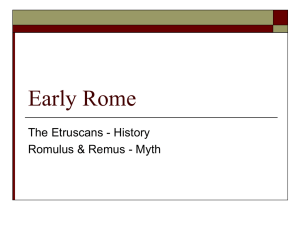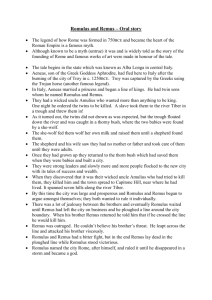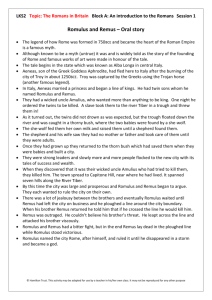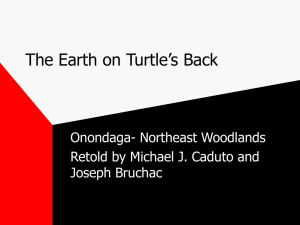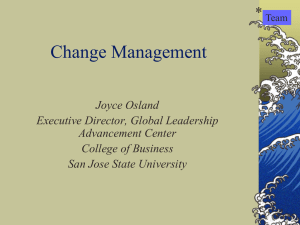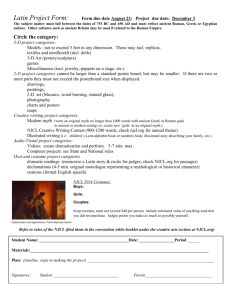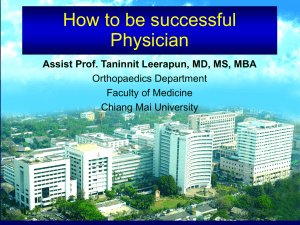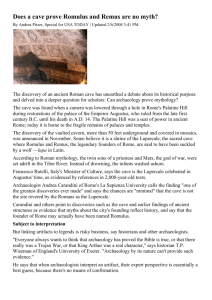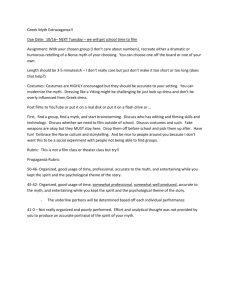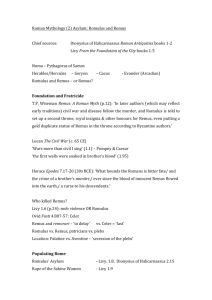Romulus and Remus
advertisement
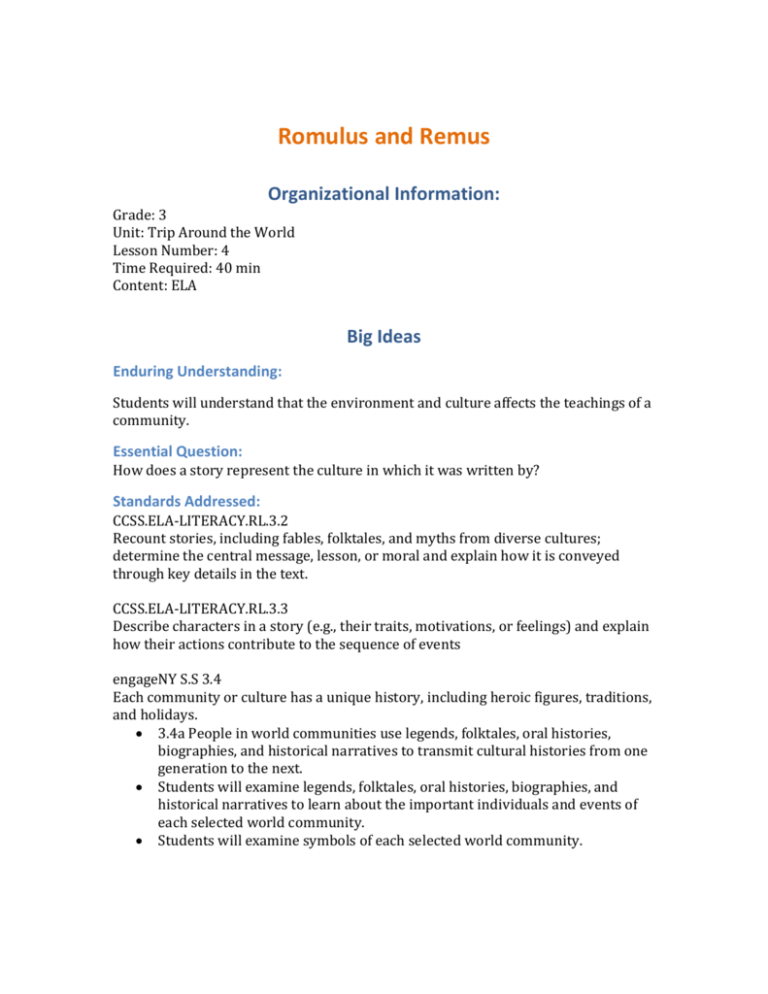
Romulus and Remus Organizational Information: Grade: 3 Unit: Trip Around the World Lesson Number: 4 Time Required: 40 min Content: ELA Big Ideas Enduring Understanding: Students will understand that the environment and culture affects the teachings of a community. Essential Question: How does a story represent the culture in which it was written by? Standards Addressed: CCSS.ELA-LITERACY.RL.3.2 Recount stories, including fables, folktales, and myths from diverse cultures; determine the central message, lesson, or moral and explain how it is conveyed through key details in the text. CCSS.ELA-LITERACY.RL.3.3 Describe characters in a story (e.g., their traits, motivations, or feelings) and explain how their actions contribute to the sequence of events engageNY S.S 3.4 Each community or culture has a unique history, including heroic figures, traditions, and holidays. 3.4a People in world communities use legends, folktales, oral histories, biographies, and historical narratives to transmit cultural histories from one generation to the next. Students will examine legends, folktales, oral histories, biographies, and historical narratives to learn about the important individuals and events of each selected world community. Students will examine symbols of each selected world community. Objectives and Assessments: Objective 1: Students will identify the elements of a myth Assessment 1: Students will write a myth that must include the basic elements of a myth. Materials Students: Folklore worksheet Paper Pencil Teacher: Story of Romulus and Remus Prep: Preparation for the lesson: Have the definition for myth ready for the class to copy unto their folklore worksheet. Learning Activities Intro: In Ancient times peopled struggled to understand the origins of the life. In Ancient Rome the believed in polytheism, which is the belief in multiple gods. Like Ancient Greece these two cultures believed that the events that happened on Earth were results of the interactions between the Gods and the human world. Today we will be discussing a MYTH from ANCIENT ROME. A myth is a story that explains a natural occurrence. The myth we will be reading is Romulus and Remus, which is the story of how Rome came to be. Step by Step Explanation of Activities: Activity 1: Read the story of Romulus and Remus. http://www.ancient.eu/Romulus_and_Remus/ While reading highlight the importance of gods and destiny. Why might they tell stories of their city being created by gods? How do we know the history of our city? Activity 2: Create a myth about the city of Buffalo. Students create a story about the origins of Buffalo by writing a myth Closer: Choose a few students to come share their story to the class.

